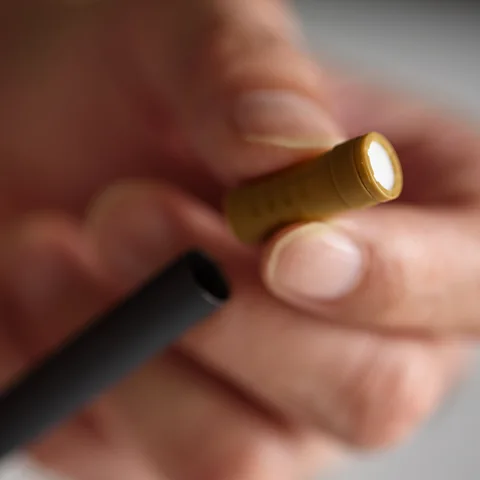BAT have also employed similar marketing tactics, paying social media influencers, sponsoring boat parties and organising giveaways at Formula 1 races.
So far, heated tobacco products have had limited penetration in the US. While one survey of 40,000 US adults found that 8% were aware of them, only 0.5% had ever used one of the devices. But that could change. After first receiving a limited authorisation from the US Food and Drug Administration in 2019, which was later extended in 2020, IQOS is now re-entering the US market in Austin, Texas.
The tobacco industry promotes this new generation of heated tobacco products as a safer, smoke-free alternative, stressing that they only heat, not burn tobacco. PMI’s website, for example, states that they aim to remove “combustion of tobacco, the cause of most tobacco-related diseases”, celebrating IQOS as “the next step in tobacco harm reduction”. The company estimates that more than 22 million adults globally have quit smoking cigarettes and switched to its heated tobacco products.
Studies have found that switching from cigarettes to heated tobacco can be beneficial in some people
PMI has said in the past that it intends to stop selling cigarettes and become a smoke-free company. It is investing heavily in products such as heated tobacco and hopes for at least two-thirds of its revenues to come from smoke-free products by 2030.
But independent researchers and public health experts argue that heated tobacco products are still harmful to human health and urge users to give up tobacco altogether. They express concerns at some of the marketing strategies, saying that the use of influencers and glamorous launch parties could encourage heated tobacco use among young people, who are more likely not to have smoked before, which could make these products a gateway to cigarettes.
PMI, JTI and BAT all insist their products are aimed at adults only. PMI says it has a robust code of conduct that does not allow marketing that appeals to minors such as cartoons, youth-orientated celebrities or models who are or appear to be under the age of 25. BAT said they carry out due diligence on any influencer partnerships to ensure that a significant majority of their followers are over 18 years old. JTI says it is “committed to the principle that minors should never use or access nicotine-containing products”. It says it ensures it markets its heated tobacco products in a “socially responsible way” in accordance with applicable laws and rules.
But Silvano Gallus, an epidemiologist at the Mario Negri Institute for Pharmacological Research in Milan, believes that existing smokers do not appear to be the main audience for these products, despite the messaging from tobacco firms. He first started monitoring the rollout of heated tobacco products more than a decade ago.
“We began to see the promotion of these products everywhere with advertisements, events and parties, particularly aimed at young people,” says Gallus, reflecting on the initial launch of heated tobacco in the cities of Milan and Nagoya, Japan.
In 2019, PMI suspended a social media campaign involving digital influencers after the news organisation Reuters revealed the company had been using young online personalities to market its products, including a 21-year-old woman, in breach of its own code of conduct. PMI said at the time that no laws were broken, but acknowledged that the campaign failed to meet the company’s standards.
 Getty Images
Getty ImagesGallus claims that the users of heated tobacco products in Italy tend to be young, pointing to surveys which have described their use as widespread among adolescents. “They aren’t 60-year-old hardcore smokers looking for an alternative to cigarettes,” he says.
PMI, however, insists that unintended use among youths is low in the 70 markets where IQOS is currently available. It points to a survey in 2021 funded by the Japanese government that showed 0.9% of those questioned in junior high school (aged 13-15) and 1.4% of those in high school (aged 16-18) said they used heated tobacco. It is illegal to smoke or buy tobacco in Japan under the age of 20. Other studies in countries around the world show use among youths is in the low single digits, PMI says.